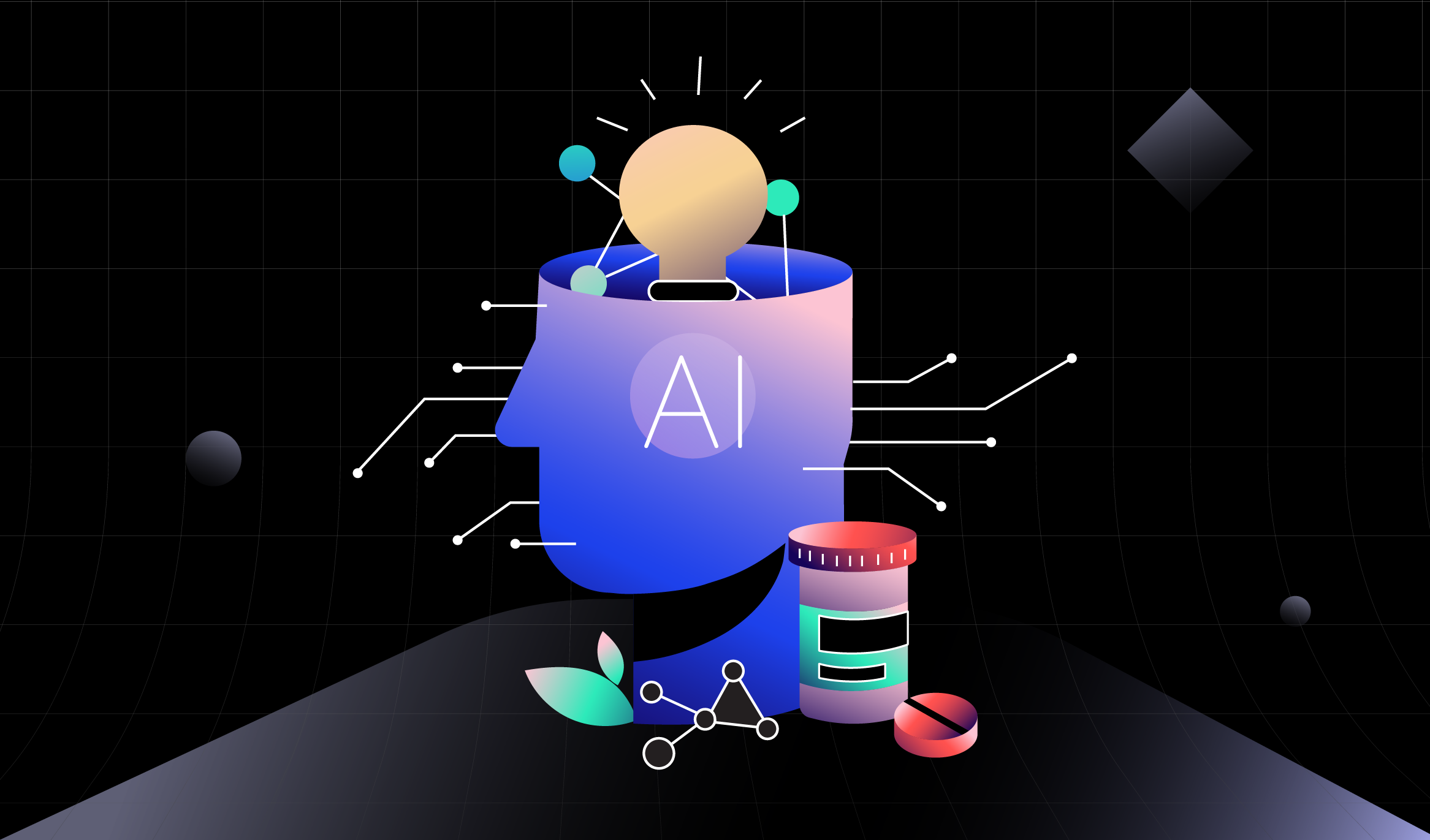Imagine a world where groundbreaking drugs are developed at lightning speed and data-driven decisions are made with unparalleled accuracy and speed. This is the promise of Artificial Intelligence (AI) in pharmaceutical industry, a sector that is only beginning to harness the power of AI’s vast potential. By analyzing job data among the top 20 pharma companies, we uncover how this transformative technology is set to redefine the pharma workplace. Join us as we explore the current trends and future potential of AI-related jobs within the pharmaceutical industry.
AI-Related Job Postings
As of Q1’24, there were over 6k open job postings among the top 20 pharmaceutical manufacturers (defined by 2023 revenue). Approximately 8% of these job postings made some mention of AI-related responsibilities. This relatively low percentage suggests that while AI is gaining traction, very few roles have incorporated AI into their daily operations, and there remains significant potential for future growth as companies continue to explore and implement AI technologies.
Types of AI Roles
Within pharma, AI-related roles are most concentrated in Data Science and Research & Development departments. The high percentage of AI-related job postings in Data Science reflects the industry's focus on data-driven decision-making and advanced analytics. In R&D, the rise of AI-related jobs is driven by AI's ability to predict how novel molecules interact with human proteins and cells, reducing the trial and error in drug discovery. As a result, emerging areas such as Generative AI, Deep Learning, and Neural Networks are also significant in these departments. However, there remains substantial opportunity for AI adoption in fields like Legal & Compliance, Regulatory Affairs, and Clinical Operations.
Company Ranks
Johnson & Johnson leads all top 20 firms with 14.43% of its job postings related to AI, followed by AbbVie (10.93%) and Amgen (8.87%). These leaders are setting the pace for AI integration in the industry, highlighting the strategic importance of AI investment. In contrast, companies like Otsuka (0%), Novartis (1.44%), and Novo Nordisk (1.44%) have fewer AI-related job postings.
R&D Spend and AI Job Postings
There is a weak positive correlation (Pearson coefficient of 0.202) between R&D spending and the percentage of open job postings that are relevant to AI. This suggests that while higher R&D investment is associated with a slightly higher proportion of AI-related job postings, other factors may also play significant roles, such as strategic focus, tangible use cases, and existing technological infrastructure. Companies must consider these factors to effectively integrate AI into their operations.
Concluding Thoughts
Our analysis reveals that AI is gradually making its way into the pharmaceutical industry, with significant potential for growth. As AI continues to evolve, its strategic importance in driving innovation and efficiency will only grow. By understanding these trends, pharma companies can better position themselves to harness the power of AI in pharmaceutical industry, stay competitive, and drive the next wave of innovation in healthcare.
Get in touch with us for more information


